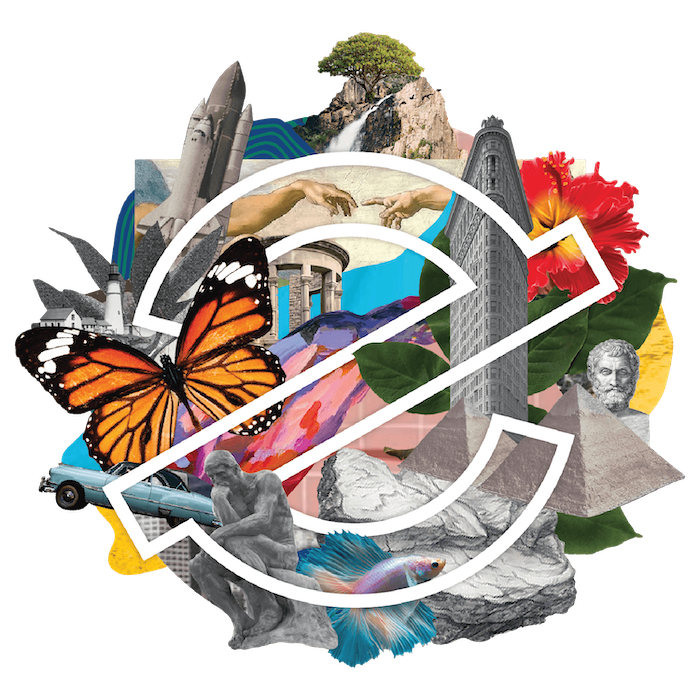
I’ve always been fascinated by the way John begins the first of his short letters: “That which was from the beginning, which we have heard, which we have seen with our eyes, which we have looked at and our hands have touched—this we proclaim concerning the Word of life. The life appeared; we have seen it and testify to it . . .” (1 Jn 1:1-2). John wrote this as an eighty-year-old man, an elder at the church in Ephesus, to encourage the churches in the western region of what is now Turkey. Sixty years had passed since John was a young man, full of zeal and life, an eager student of the Jewish rabbi Jesus . . . one of his inner circle, in fact, “the disciple whom Jesus loved.” He stayed close to his teacher to the end, the only disciple at the foot of the cross, caring for the mother of his friend. He was also the first of the disciples to reach the empty tomb, an eyewitness to the physical, literal, historical, resurrected Jesus. For John, God was not an idea, or a moral standard, or a disembodied power. God was his friend, a man he spent years with, listening, watching, and physically interacting with. John knew what Jesus looked like, what he smelled like, felt like, how tall he was, he knew Jesus’ accent when he spoke, and what it felt like to laugh and cry with him. This is not the stuff of fairy tales and fiction, but a man recounting his lived experience. Completely fascinating.
Aside from his personal experience with Jesus during his earthly ministry, by the time he wrote these small letters he had the advantage of sixty years of Jesus’ ascended ministry through the indwelling presence of the Holy Spirit. If anyone could tell us they knew, and I mean really knew what Jesus was like, it was John. And, lucky for us, he did tell us. After a wild three years with Jesus on the earth, then another six decades with Jesus indwelling him through the Spirit, John sums up his experience with the God of the universe in what has to be the most powerful three-word sentence in all of history: “God is love.” Sometimes I wonder how many people glance at 1 John 4:8 and 16 as they pass by in their devotional reading. A momentary thought in the midst of an otherwise strained and hectic life. And a tragedy. A driving task at the core of Eden Project’s mission is to push people to this little sentence and gently keep them there until we actually start to believe it. I’m not talking about cognitive assent, but real, experiential belief. Only when that happens, and not a moment before, are we able to be deeply formed into the life of the triune God, who, in love, is actively present in us, around us, and for us. The only thing that transforms is the love of God.
This is no small task. We are deeply formed the other way, and significant obstacles stand in the way, not least of which is the fact that the word love has lost almost all meaning in today’s culture. One of the most common phrases used today is: “love is love.” To this I scratch my head then steal from Lewis to reply (with no small amount of confusion), “[that] is true, but not worth saying.”1 In defining a word by that word all meaning is lost, which brings us to the first of three points taken from John McIntyre’s little book On the Love of God: People do not understand real love.2 For many, the other-centered, self-giving nature of love has been abandoned, replaced with an individualistic narcissism answerable only to itself. Because the meaning of the word is solely contained within the isolated psychic life of the individual, it can mean whatever the person wants it to mean as long as it is contained in the self. Ironically, when defined from within an individual, love can mean anything except what it actually means, given that meaning resides outside the individual. And when love can mean anything, it means nothing. This is not to suggest our society has redefined what love means in an ontological sense. We can no more redefine the essence of love any more than we can make a frog into a man by calling it a prince.3 This is the stuff of fantasy. But this fantasy is what many people choose to live in, tragically attempting to make their way in the dark, void of any point of reference to guide them in a world that is real. People may continue to operate as if reality is something other than it is, but this is not sustainable, and reality has a way of correcting people. As Dallas Willard said, “reality [is] what you run into when you are wrong.”4
Second, people are generally initially drawn in by the sacrificial, self-giving nature of love, but when they begin to understand what love requires, most people retreat and cope, or hide. I think there are a handful of reasons for this, the first being love’s demand to find its essence outside the individual in something objectively real. This requires the individual to yield, something that doesn’t come easily in my experience. Another reason people resist love is its primary aim is not to meet all “felt” needs, which typically means it often does not “feel” good.5 Love is no mere sentimentality, “but a steady wish for the loved person’s ultimate good as far as it can be obtained.”6 For a culture ready to die at the altar of self-actualization (“me, not you”—which breaks the circle of life) through subjective, internal desires (Gk. epithumia), anything posing a threat to this dogma is anathema.7 In this way love becomes a judgment, precisely because it will not yield to something less than what is best for the one it loves. When real love encounters someone locked in his own desire, it requires of him the recognition that he is powerless to manipulate or change its relentless pursuit of his good, bringing him face to face with the startling reality that love demands the surrender of these desires along with the deeply held belief he is God . . . the very thing killing him.8 The tension this creates between self-reliance and surrender to love can become so intense that people end up mistaking love for hate.9 The irony is when we allow the desires (epithumia) we so often equate with love to become supreme they “become in fact complicated forms of hatred.”10 Anyone convinced love is actually hate is upside-down, so any pursuit of that person’s highest good is perceived as the greatest threat and will be resisted at every turn.
Third, as seen in the evangelical narrative in America, the Church has generally done a poor job putting love where it belongs: at the center of Christian theology and gospel proclamation. The narrative that drives our orthodoxy and orthopraxy has been reduced either to a set of dogmas or the pursuit of religious activity or a “higher” experience, relegating the pulsing heartbeat of the gospel to an afterthought or a footnote often assumed. Part of the explanation for this is the early Christian dispersion from Judea to more Greek dominated areas of the Mediterranean. In this new environment Christian theology began to be influenced by Greek philosophy, which sought to sort out core doctrines from a more rational standpoint.11 In other words, the eyewitnesses watched the Christ event happen, the early fathers were trying to sort out what happened. That’s a crude way of thinking about theological development in the early Church, but probably not too far off. Influenced by western philosophy, this “sorting out” eventually sought to systematize theology, blending philosophical reasoning with God’s revelation through Scripture. What was revealed in the text began to be “dissected” so to speak in an attempt to understand who God is, what he is like, what he’s done, etc. Greek concepts like omnipotence, omniscience, impassibility, causality, immutability, etc. were applied to God and became the more prominent topics of theological discussion. All well and good, except an unintended consequence is the love of God ends up getting pushed out of the driving center of Christian theology into a peripheral list of moral attributes. A brief look through a handful of current prominent systematic theologies revealed a lack of substantive treatment on God as love.12 Some mention it briefly in regard to the Trinity, some list it as a moral attribute, and at least one doesn’t mention it at all.
Clearly, something is off. When the person who knew Jesus best gives a summary statement of his belief regarding who God is, and that statement is: “God is love,” that should be the starting point and driver for anyone seeking to gain and maintain not only a coherent doctrinal system but also a personal experience akin to John’s. I don’t think John has to be alone in his experience. In fact, I think he wrote his letter precisely so that others would “have fellowship with us. And our fellowship is with the Father and with his Son, Jesus Christ” (1 Jn 1:3). Like John, we are able to have a personal experience of the love of God. That is, in fact, the way we are designed . . . it is the fuel we are supposed to run on, and until we do we will continue to choke on the toxic air of a life that may have a sound creed but withers because our actual experience fails to substantively connect to the one who is actually real.







